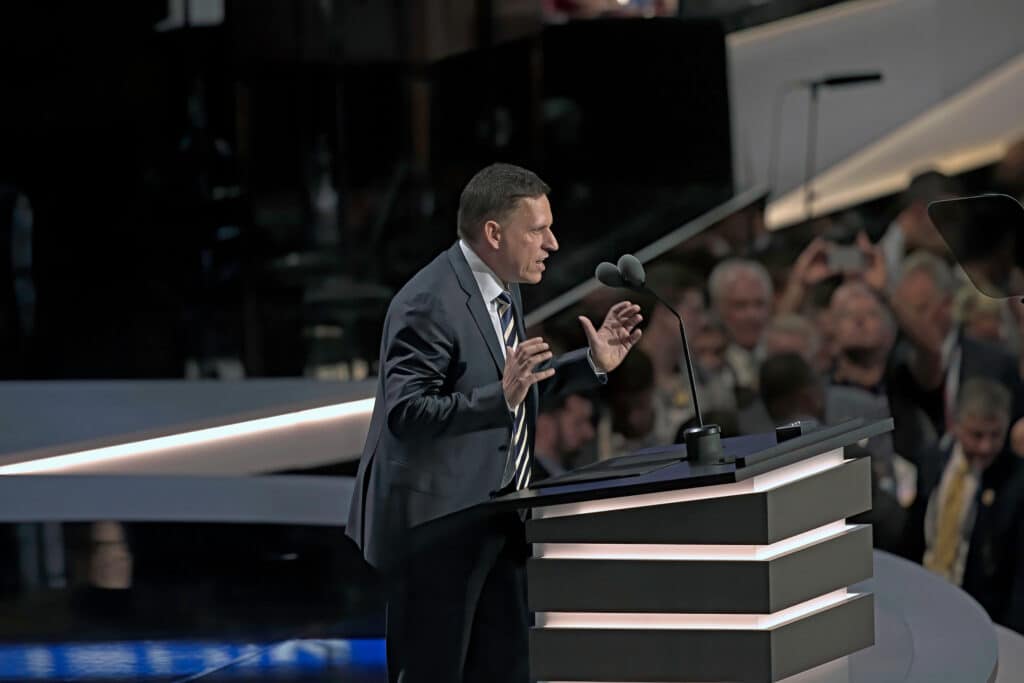At over a staggering $2 billion net worth, Peter Thiel is arguably one of the most inspiring billionaires. You may be wondering what his daily routine is and if it is a contributing factor to his riches.
Peter Thiel follows no structured routine. He is a firm believer in staying “unplanned” and argues that entrepreneurship is all about experimentation. He often challenges people to accomplish their 10-year plans in six months. Despite not having a particular routine he follows, the PayPal co-founder has a few things he habitually does. These include specific sleeping and eating patterns and social interactions.

Peter Thiel’s Daily Habits
As part of his daily activities, plans, and habits, Peter Thiel tries to maintain as healthy a lifestyle as he can manage.
He sleeps for 6-7 hours, waking at 6:30, and does not rely on alarms to wake him up.
In his bid to maintain good health, his diet of choice is the paleo diet. Sugar is strictly never a part of his diet.
Peter Thiel is also an avid reader, which comes as no surprise. When asked about his favorite kind of books, he says that he loves books written about the future, such as New Atlantis by Francis Bacon.
When it comes to social interactions, he tries to contact the people he considers smartest daily. This enables him to grow and expand his thinking while also shaping the world with his views.
Most of the smart people he speaks to are his friends with whom they have been working over the years.
Peter Thiel also takes Human Growth Hormones each day to increase his life expectancy with the hope of attaining up to 120 years.
The billionaire believes that with the proper care, diet, and use of modern science, human beings can significantly increase their lives’ longevity.
For leisure, he liked playing online chess for 1- 1.5 hours every day, a habit he tried to overcome quite often. His desire to quit playing had him deleting the chess application from his personal computer severally.
While growing up, chess was not just a minor hobby for him. Having played chess from the early age of 6, he made such great strides he was titled Life Master (a title one holds for life).
Peter’s Accomplishments
Peter Thiel’s achievements are no mean feat. From a very early stage in his life and career, he ventured into Confinity; a company co-founded with Max Levchin.
Confinity later led to the development of PayPal, which has dramatically grown over the years. He then proceeded to other multi-million ventures within a relatively short time.
He founded Clarium Capital Management, Palantir, and was an angel investor when Facebook started. His $500,000 investment was the only external investment that Zuckerberg received as he began his venture.
His angel investment earned him a 10.2% stake at Facebook and a spot as a board member. However, he was not an active participant in governance roles.
Thus far, one of Thiel’s most remarkable contributions in the tech world is the co-founding of the Founder’s Fund, the San Francisco-based venture capital fund that has seen the inception of many other startups such as LinkedIn, Quora, Yelp Inc, and Spotify.
In 2014, he helped author the book ‘Zero to One: Notes on Startups, or How to Build The Future,’ which was an Amazon bestseller for quite a while.
Motivating Young Entrepreneurs
Despite pursuing a career in law, the German-American billionaire did not practice law for a long time. He left the practice to begin his startup when he noticed things were not as good as he wanted them to be.
With the first investment of $1 million, he has made undeniably remarkable strides despite the setbacks he faced while investing. In his book, Zero to One, he writes, “Today’s ‘best practices’ lead to dead ends; the best paths are new and untried.”
He further reminds his readers that it is better to risk boldness than triviality.
Every time he addresses students, the Silicon Valley billionaire leaves them inspired to follow their startup dreams and beat whatever odds they might face. He is also very philanthropic and supportive of young entrepreneurs, bidding them work on their ventures as early as possible.
He may not have a structured routine, but one thing he has discovered is what he wishes to have known while he was in his 20s; “If you go back 20 or 25 years, I wish I would have known that there was no need to wait.”